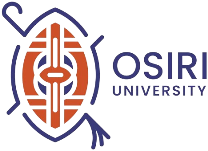ABOUT
Our students engineer for impact. We are creating a culture of excellence where learners and teachers approach engineering from from the organization's and the community’s perspective and students are challenged to think creatively, innovatively, and broadly.
Our broad-based curriculum allows students to learn history, arts, and language, to design models that are culturally appropriate and relevant. Therefore, our graduates are not only technically sound in engineering, mathematics, and science, our teachers help them to connect their classroom experiences first to their immediate environment and then to the wider world.
DEGREE PROGRAMS
Master of Science in Smart Manufacturing
Program Description
The Master of Science in Smart Manufacturing (MSSM) will equip graduates with cutting-edge digital technology and an advanced level of knowledge in computing, networking, sensing technologies, security, and the digitally-enabled value chain that supports the development and operation of Industry 4.0. Graduates will contribute and actively participate in modern manufacturing, which is in great demand. The program considers new and sophisticated manufacturing trends, which rest at the intersection of people and machines. Thus, graduates will learn how to use computational tools to generate scenarios and make prudent decisions in manufacturing. Graduates will learn how lean methods can be applied within any industry. Graduates will develop and sharpen their leadership skills, which are essential to creating change and achieving impact in manufacturing, by considering recycling, waste reduction, logistics issues, automation, robots, and co-bots. Graduates will also learn to integrate people and their cultures on a common work platform. Students will complete a practicum course that prepares them to take the Six Sigma Green Belt Certification exam. The School of Engineering offers applicants the option to complete the full MS degree or earn a graduate certificate by taking only three courses.
Admission Requirements
Admission into the MS degree program in Smart Manufacturing (MSSM) requires a bachelor’s degree or its equivalent in engineering, physics, computer science, or a related field and a command of the English Language. Students seeking admission into this program who do not have the preferred bachelor’s degree must demonstrate the required proficiency in the basic understanding of manufacturing (e.g. coursework, a relevant minor in their degree, or a certificate in addition to a bachelor’s degree).
Program Courses
Completing the MSSM degree program requires taking 30 credit hours of course work including six (6) credit hours of a research thesis. The MSSM is comprised of a set of required graduate courses and two areas of concentration: (i) Sustainable Designing and Modeling and (ii) Sensors and Robotics. As a bonus, students will automatically earn a Certificate in Sustainable Designing and Modeling and a Certificate in Sensors and Robotics on their journey toward completing their MSSM. With the exception of ENGR 500 and ENGR 580, which are 6 credits each and 8 weeks long, all the program courses are 3 credits and 5 weeks long. The MSSM can be completed in one year as shown below.
COURSES
Spring
Session 1
ENGR 560 Integrated Power Resource Planning
Session 2
CSIS 560 Data Science and Analytics
Session 3
ENGR 550 Robotics and Embedded Systems
Summer
Session 1
ENGR 580 Six Sigma Course (6 credits, 8 weeks) or ENGR 500 Research Thesis (6 credits, 8 weeks)
BUSA 560 Sustainable Entrepreneurship and Leadership
Session 2
HUMA 570 Human Knowledge, Philosophy and Ethics
Spring
Session 1
ENGR 510 Computer Aided Design
Session 2
ENGR 520 Computational Modeling
Session 3
ENGR 530 Computational Physics
GRADUATE CERTIFICATES
- ENGR 560 Integrated Power Resource Planning
- CSIS 560 Data Science and Analytics
- ENGR 550 Robotics and Embedded Systems
- ENGR 510 Computer Aided Design
- ENGR 520 Computational Modeling
- ENGR 530 Computational Physics

